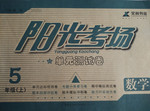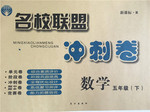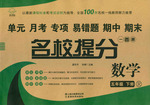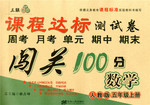题目内容
I had my first job at the age of thirteen, when a friend of my mother’s who owned a book shop 36 me for six hours a week to help her in the shop. I was very 37 to earn my own pocket money and my parents 38 interfered with how I spent it, even when I was spending it 39 . They believed that by earning money, spending it, and learning from the 40 , I would become more mature and 41 about how to handle work, relationships with others, and money.
Like many 42 parents, my parents also let me and my brothers do things over which they 43 a great deal. When I was sixteen, for example, after I finished high school and before I entered university, I wanted to spend the summer months traveling around 44 . My mother was against the idea of my traveling alone at such a young age, but my father felt that it would be a great 45 for me. In the end, my father won the 46 on the condition that I limited my traveling to France, my mother’s home, where I had many uncles, aunts and cousins 47 through the country who could 48 shelter and help if I needed them.
Three years later, my younger brother decided to 49 a year off after his first year in university and travel through the United States and the Caribbean. Again my mother was very worried and not 50 to see my brother leave school, but my father encouraged him and my brother had a(n) 51 year working his way on trains and ships to 52 passage to different ports and cities, and discovering many fascinating places and people.
These kinds of experiences are probably rare for children in many countries but in the US they are fairly 53 . Most parents start 54 their children at a young age to do small things by themselves. By the time they have finished high school, many American kids have already had part-time jobs, traveled around the US or other countries on their own, have 55 the university they plan to attend and maybe even decided on their future career, and so on.
36. A. taught B. allowed C. treated D. hired
37. A. anxious B. content C. proud D. hopeful
38. A. never B. ever C. always D. even
39. A. quickly B. foolishly C. seriously D. honestly
40. A. work B. mistakes C. others D. books
41. A. strict B. reasonable C. polite D. responsible
42. A. American B. Japanese C. Chinese D. British
43. A. helped B. supported C. shared D. worried
44. A. Asia B. Africa C. Europe D. Oceania
45. A. journey B. experience C. chance D. possibility
46. A. argument B. game C. discussion D. plan
47. A. send out B. give out C. carry out D. spread out
48. A. promise B. afford C. provide D. serve
49. A. leave B. make C. take D. prepare
50. A. angry B. eager C. sorry D. sad
51. A. unusual B. hard C. strange D. busy
52. A. accept B. earn C. find D. search
53. A. welcome B. fit C. necessary D. common
54. A. bringing B. forcing C. pushing D. protecting
55. A. selected B. admired C. afforded D. left
36.A.37.A.38.A.39.B.40.B.41.D.42.A.43.D.44.C.45.A.46.A.47.A.48.C.49.C.50.B.51.A.
52.B.53.D.54.C.55.A.
解析:
36. A. taught 教;B. allowed允许;C. treated对待;D. hired雇佣。从下文help her in the
shop可知选D。
37. A. anxious焦急的;B. content满意的;C. proud自豪的; D. hopeful有希望的。因为自己挣钱
自己花,当然是值得骄傲与自豪的了。
38. 从下文看她的父母很开通,支持孩子独立自主,给孩子锻炼机会,所以判断它们不会干涉孩子如何
花零花钱的。故选A. never。
39. 根据上下文,可知作者的父母给孩子充分的锻炼机会,哪怕是犯错误。这里只即使他不理智的花
钱,父母也不会干涉;好让他在错误中吸取教训,学会合理地消费。故选B. foolishly
40. 选B. mistakes。同上。
41. 选D. responsible。作者的父母希望孩子经历过错误后,变得更成熟,在与人交往和处理事情时更
有责任心。
42. 选A. American。从最后一段第一句话but in the US they are fairly…可知。
43. 选D. worried。从第三段第二行Again my mother was very worried可知。
44. 选C. Europe。从下文I limited my traveling to France, my mother’s home可知。
45. A. journey旅行,旅程;B. experience经历;C. chance机会;D. possibility可能性。从文中以
及最后一段These kinds of experiences可知作者希望通过独自旅行锻炼自己,对自己的成长来说
应该是一次难得的经历。
46. 父母对儿子独自旅行的态度不一样,所以应选A. argument争论;B. game游戏,比赛;C.
discussion讨论;D. plan计划。
47. A. send out发送; 放出; 派遣;B. give out分发, 发出(气味、热等);C. carry out完成; 实
现;选D. spread out这里指母亲的亲属分散在法国各地,都可以为他提供帮助。
48. 选C. provide同上。 A. promise保证,允诺;B. afford负担得起;D. serve服务。
49. take a year off请一年假。
50. 从Again my mother was very worried 可知母亲像当年担心我一样担心弟弟,不愿意他离开学
校,故选B. eager热切的,渴望的,热心的。
51. 因为弟弟是主动选择边打工边旅行,因而他一定觉得这样的经历unusual不同寻常,而非hard艰
苦,strange奇怪或busy繁忙。
52. 这里passage指(乘船或飞机的)航程, 旅行, 旅费;earn passage to different ports and
cities自己挣钱到各处旅行。
53. 从These kinds of experiences are probably rare for children in many countries but in
the US they are fairly …句中but可知前后表达对比的意思,因此选rare的反义词common常见的.
54. A. bringing带来;B. forcing迫使;C. pushing促使;D. protecting保护。这里指父母推动孩子
做自己想做的事,而不是强迫,故选D。
55. 指孩子们自己选好了大学,故选A. selected。B. admired羡慕,钦佩;C. afforded负担得起;
D. left离开。

 阳光考场单元测试卷系列答案
阳光考场单元测试卷系列答案 名校联盟冲刺卷系列答案
名校联盟冲刺卷系列答案 名校提分一卷通系列答案
名校提分一卷通系列答案 课程达标测试卷闯关100分系列答案
课程达标测试卷闯关100分系列答案
| |||||||||||||||||||||||||||||||||||||||||||||||||||||||||||
| |||||||||||||||||||||||||||||||||||||||||||||||||||||||||||||||||||||||||||||||||||||||||||||||||||||||||||||||||||||||||||||||||||||||||||||||||||||||||||||||||||||||||||||||||||||||||||||||||||||||||||||||||||||||||||||||||||||||||||||||||||||||||||||||||||||||||||||||||||||||||||